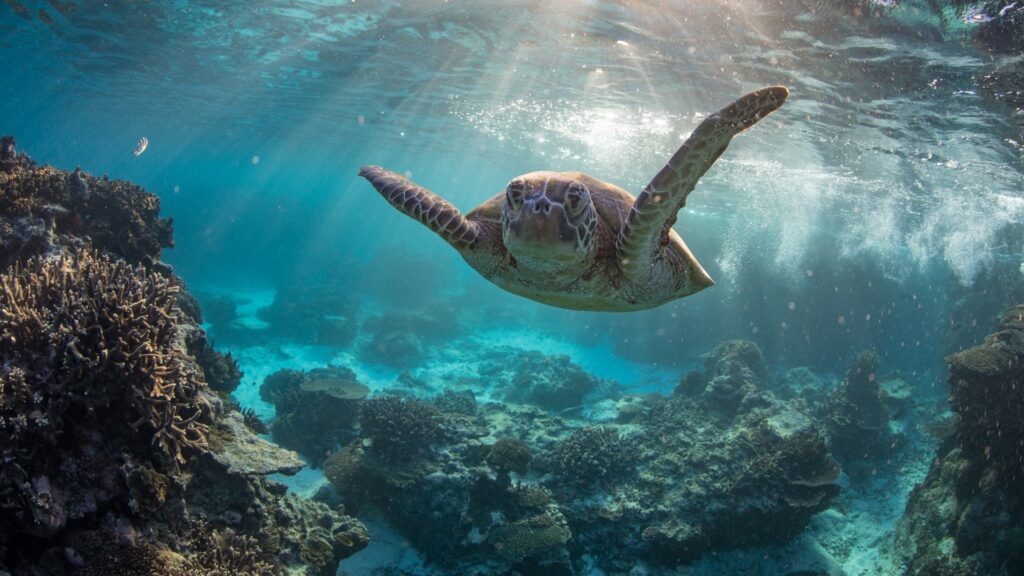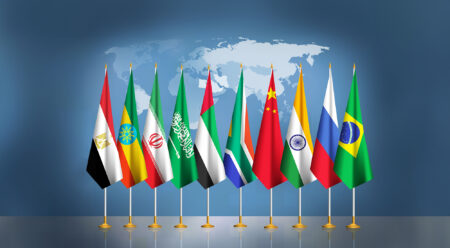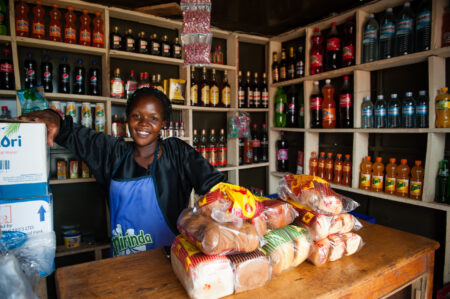- Oceans are pivotal, and Africa’s blue economy can contribute to the continent’s GDP growth.
- According to the African Union Blue Economy Strategy, 90 per cent of imports and exports in the continent go through the sea, providing 49 million jobs.
- African coastal and island states encompass 13 million square kilometres of vast ocean territories.
On June 8th, African economies joined the world in marking World Oceans Day under the theme ‘Planet Ocean: Tides are changing. Africa, the second largest continent in the world by land mass and population, borders the Mediterranean Sea to the north, the Red Sea to the northeast, the Indian Ocean to the east, and the Atlantic Ocean to the west. These territorial waters, if nurtured, could contribute significantly to Africa’s blue economy.
Ocean conservation key to the growth of Africa’s blue economy
Besides, the Indian and Atlantic Oceans converge off the southern coast of South Africa! Celebrated annually since 1992, the day has been vital in creating ocean conservation and preservation awareness. The day has been critical in tapping into the massive economic potential of Africa’s blue economy.
With 32 coastal states and six island states, oceans in Africa play a pivotal role in contributing to the continent’s GDP through the blue economy.
“Marine biodiversity is under attack from overfishing, over-exploitation and ocean acidification. A third of fish stocks in Africa are harvested at unsustainable levels. And we are polluting our coastal waters with chemicals, plastics and human waste.
“However, this year’s World Oceans Day is a reminder that the tides are changing. Last year, we adopted an ambitious global target to conserve and manage 30 per cent of land and marine and coastal areas by 2030, as well as a landmark agreement on fisheries subsidies.” the UN Secretary-General António Guterres noted in his address.
The African Union Blue Economy Strategy shows 90 per cent volume of imports and exports in Africa occur in the sea, and the sector provides 49 million jobs.
Africa’s blue economy generates $300 billion, projected to reach $405 billion by 2030. Coastal tourism is estimated at around $100 billion by the same period.
Opportunities in Africa’s blue economy
Further, about 75 per cent of African countries have maritime access, offering significant opportunities in the blue economy. If sustainably managed, the industry’s global potential can raise an estimated $1.5 trillion.
African coastal and island states encompass an estimated 13 million km² of vast ocean territories. This has birthed a plethora of activities in Africa’s blue economy ecosystem, such as the marine fisheries industry, aquaculture, maritime trade, coastal tourism, offshore oil and gas energy and shipping.
Read also: Climate financing: Africa’s green bonds uptake on a roll
The celebration comes three days after world environment day, held on June 5th in Cote d’Ivoire under the theme ‘Beat plastic pollution.’ These pollutants are increasingly posing an existential threat to oceans, exacerbating global warming and risking the survival of biodiversity.
In the same vein, the occasion also coincided with the international day for the fight against Illegal, Unreported and Unregulated Fishing (IUU), which has equally proved detrimental to the blue economy.
Over and above, the promise of the long-awaited “High seas treaty”, which includes rules for managing ocean life, will further ensure ocean protection, rekindling hope for a healthy ocean, planet, and human life.
Marine protected areas in high seas
The treaty was enacted in March 2023 after negotiations spanning two decades under the UN Convention on the Law of the Sea (UNCLOS) on the Conservation and Sustainable Use of Marine Biodiversity of Areas Beyond National Jurisdiction (BBNJ).
The Treaty will establish marine protected areas on the high seas by conducting environmental impact assessments. During the launch, UN Secretary-General noted that the treaty could ensure the conservation and sustainable use of marine biological diversity of over two-thirds of our life-sustaining ocean space, thereby advancing ocean health for future generations.
African countries stand to benefit from this access to ocean resources to fight hunger and poverty and foster socioeconomic development. Adopting conservation and management measures will protect, preserve, restore and maintain biodiversity and ecosystems that will support Africa’s food security.
Read also: The Rise of Africa’s Blue Economy: Investments Set to grow in 2023
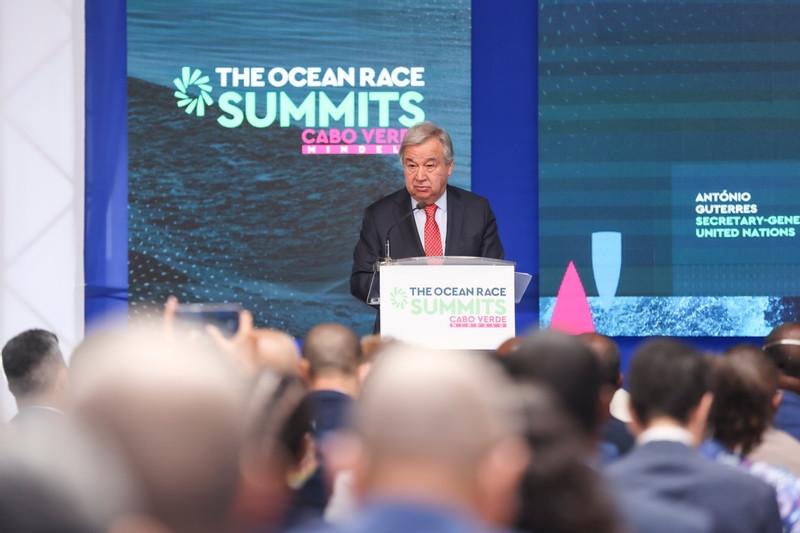
Tapping into Africa’s blue economy bonds
African governments have been especially keen to harness the myriad opportunities the blue economy offers. This is by deepening investments and developing national blue economy action plans and strategies.
Take the Seychelles Blue Economy Action Plan, which incorporates the blue economy into a ministry in Mauritius. Another good move is Kenya’s Presidential Blue Economy Taskforce and the Policy Charter for the Blue Economy in Cape Verde.
In January, Cape Verde launched its first blue bond in the backdrop of the 2023 edition of the Ocean Race. The bond was launched on the country’s Blu-X sustainable finance platform, a regional initiative for listing and trading sustainable and inclusive financial instruments.
Cape Verde’s rising ocean economy
The issuance will raise domestic, regional, and global investment in Cape Verde’s rising ocean economy. This will decrease while divesting capital from industries responsible for sea-level rise, pollution, and other crimes.
By hoisting the blue flag, Cape Verde followed Seychelles, which launched the world’s first sovereign blue bond in 2018. The move sought to help finance the island nation’s transition to sustainable fishing and protecting marine resources. The blue bond raised $15 million from public and private investors, boosting the nation in safeguarding its oceans and developing its blue economy.
Africa’s blue economy has led to the growth of blue entrepreneurship. In light of this, in February 2023, seven African startups received $385,000 to develop solutions for the blue economy. These startups were from Kenya, Egypt, South Africa, Uganda, Zimbabwe and Tanzania.
The Triggering Exponential Climate Action programme, managed by BFA Global and supported by FSD Africa, was created to accelerate the development of climate-resilient solutions to protect and sustain the environment and vulnerable communities.
Sustainable aquaculture production
The cohort included Carboni Bank, a community-centred platform for tourists to offset their carbon emissions and support local climate initiatives. Further, AquaTrack is a data-driven solution for sustainable aquaculture production and Mwani Blu, building a seaweed marketplace.
In addition, Vua Solutions is a fintech seeking to provide affordable and responsible financial services to people working in Africa’s blue economy. In the fold is ConserVate, which uses innovative digital technology to build local capacity for monitoring reporting and credible verification (MRV) of conservation impact.
Others are Wezesha Aqua Farms, which addresses the dwindling wild capture fisheries stocks that negatively impact the livelihoods and socioeconomic status of local fishing communities in the great lakes region. RegisTree is empowering coastal communities to become agents of climate change mitigation by facilitating their role in mangrove restoration and protection.
Read also: 2021 Africa Industrialization Day: Bracing for a Green Industrial Revolution
The Green Climate Fund and the European Investment Bank have joined forces for climate finance in Africa. The two institutions launched the Green and Resilient Debt Platform, strengthening African climate resilience financing instruments.
The Great Blue Wall Initiative
The facility will focus on climate resilience and issuing blue bonds in Africa. Moreover, the World Bank’s Blue Economy for Resilient Africa Program wants coastal countries to leverage opportunities in blue economies.
One of the key goals under aspiration one of Africa’s Agenda 2063 is harnessing the potential of the blue economy. Similarly, a key pillar of the Great Blue Wall Initiative (GBW) is to unlock the development of a regenerative blue economy to foster sustainable development.
Africa is only a year away from the expiry of the ‘Decade of African Seas and Oceans’ expiring in 2025. The AU adopted this plan to spur ocean action and grow Africa’s blue economy.
However, in the grand scheme of things, the world is still under the Ocean Decade, officially launched in 2021. Ocean Decade sought to merge actors worldwide to foster partnerships for a sustainable ocean productivity system. This aligns well with goal 14 of the UN Sustainable Development Goals (SDGs) on ‘Life below water.’
Read also: Africa should set its terms for green energy
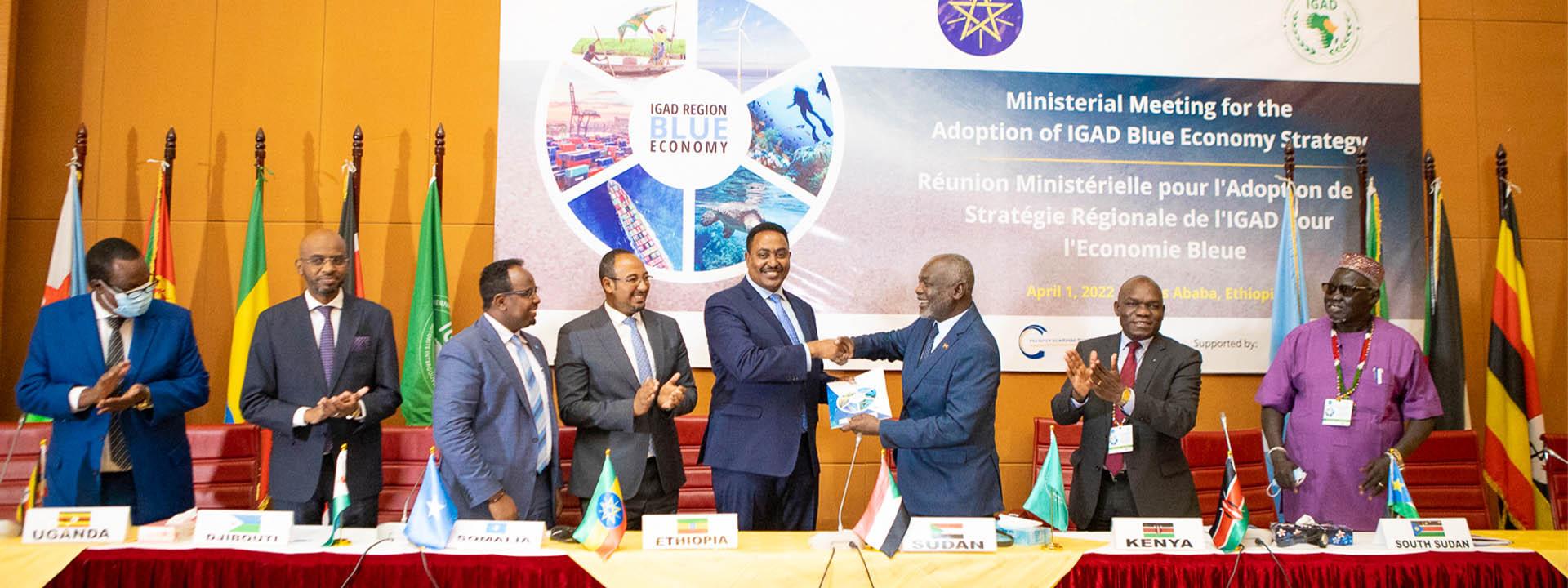
State of Africa’s Blue Economy
Coastal tourism, marine fisheries, and maritime trade dominate Africa’s blue economy. Coastal tourism makes enormous contributions to respective African economies. For instance, in the MENA region, the economic impacts of marine tourism earnings are massive. Coral reef activities bring in $19 billion per year.
Further, the marine fisheries and aquaculture, set up to hire 12.3 million people, is critical for the blue economy. The two main players are small-scale fishers comprising coastal communities and industrial fisheries.
In 2021 the African marine fisheries sector was valued at over $24 billion. However, the biggest threat to the marine fisheries sector has been climate change and IUU. World Bank says by 2050, the DRC, Côte d’Ivoire, Equatorial Guinea, Gabon, Liberia, and São Tomé and Príncipe could grapple with a 30 per cent drop in fish harvests.
African fish stocks overexploited
In addition, IUU fishing currently costs Africa as much as $2.3 billion in economic losses each year. Over 30 per cent of African fish stocks are recovering from depletion.
The development of the Africa Blue Economy Strategy by the AU and the IGAD Regional Blue Economy Strategy and Implementation Plan, elapsing in 2025 from 2021, prioritises fisheries and aquaculture.
This has positioned these industries as part of a much bigger system that calls for various sectors to operate unison. Given this, the sector’s sustainable finance is rising via the strong integration of Africa’s blue economy.
UNCTAD supports Angola in building a sustainable, resilient, inclusive blue economy. UNCTAD is running a joint programme in partnership with the European Union for Angola dubbed Train for Trade II.
The programme works on mutually supportive economic policy to diversify Angola’s economy and exports. It seeks to integrate it into regional and global value chains through various sectors, including fisheries and aquaculture.
Looking ahead, Africa stands to gain greatly from strengthened ocean sustainability. This is so if the WTO Agreement on Fisheries Subsidies is enacted by February 2024.
Cooperation on fisheries
“As a continent surrounded by oceans and home to numerous fisheries, Africa is responsible for managing and conserving a significant portion of the world’s marine resources. With over 12 million people in Africa depending directly and indirectly on the marine fishing industry for their livelihoods, we must work together toward sustainable management of our ocean resources. In light of the IUU, the health of African fisheries would improve if foreign fleets were not paid to fish in the unregulated high seas,” WTO Deputy Director-General Angela Ellard noted at a recent meeting in Zanzibar.
Read also: Africa’s First Spaceport Set to Position the Continent in the Global Space Race
Africa could borrow a leaf from the Pacific Islands Forum Fisheries Agency (FFA), established in 1979. It facilitates regional cooperation and coordination on fisheries policies among its member states.
This is to achieve conservation and optimum use of living marine resources, particularly highly migratory fish stocks. This goes a long way in benefiting people in developing countries.
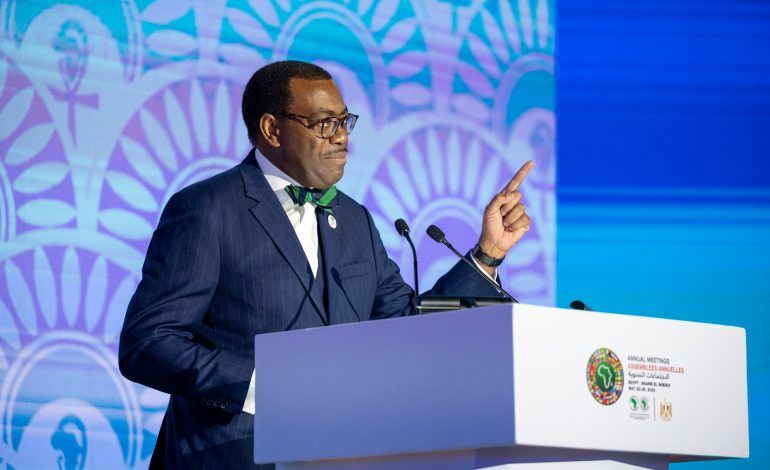
Photo-LinkedIn
The High Seas Treaty
The BBNJ agreement’s focus on marine ecological connectivity and other measures will limit unregulated illegal fishing and maritime crime. The African negotiators for the High Seas Treaty played a key role in the treaty formation.
Kenyan legal scholars Frank Xavier Njenga and Andronico Adede contributed to the provisions of an exclusive economic zone. The concept gives coastal states sovereign rights over their waters. It also gives them rights over the seabed within its zone to ensure fair and equitable access to resources.
Over and above, the agreement addresses critical issues of transboundary harm and cumulative impacts. Additionally, Africa will reap the benefits of this treaty and should safeguard and boost marine and coastal health. This help in the growth of Africa’s blue economy which could significantly contribute to GDP growth.





